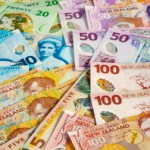Gold surged during US trading on Friday, jumping back to positive weekly territory after four straight sessions of losses, as escalating tensions in Ukraine reduced risk appetite and spurred safe-haven demand, offsetting previous losses incurred due to better-than-expected US employment data.
Gold futures for settlement in June soared 1.52% on Friday to settle at $1 302.90 per troy ounce, having ranged between days high and low of $1 304.90 and $1 272.00 respectively. The precious metal fell through the previous four sessions but managed to jump back to positive weekly territory following Fridays rebound, closing the week 0.2% higher, a second straight week of gains.
Gold remained pressured throughout the week and was set for a weekly decline, despite Wednesdays dismal GDP growth, as an overall positive sentiment for the US economy, as evident by the latest employment data, had boosted the US dollar.
Preliminary data by the Bureau of Economic Analysis showed GDP growth for the first three months of 2014 stood at an annualized 0.1% due to rough winter conditions bearing down on economic activities.
However, more recent economic activity gauges and consumer sentiment indexes, which showed the US economy had overcome the extraordinary harsh winter, signified underlying strength on which policy makers leaned on as they cut Feds monetary stimulus by another $10 billion on Wednesday.
Fed’s Chair Janet Yellen confirmed her confidence before the Independent Community Bankers of America, saying: “After several years of reduced lending following the recession, we are starting to see slow but steady loan growth at community banks,” she said, adding that “asset quality and capital ratios continue to improve, and the number of problem banks continues to decline.”
Personal spending in March in the US was reported to have increased the most in more than four years on Thursday, while the ISM manufacturing gauge exceeded expectations to report 54.9, adding to positive outlooks for the US.
Further supporting Feds view to continuously trim its Quantitative Easing program, the Labor Department reported on Friday that the US unemployment rate stood at 6.3% in April – the lowest since the very start of the financial crisis in Autumn 2008. Meanwhile, nonfarm payrolls jumped by 288 000 for the month of April, marking the highest rise since May 2010.
Holdings at the SPDR Gold Trust, the biggest bullion-backed ETF, reached the lowest point since the beginning of 2009 at 782.85 tons on May 2nd. The discouraging outflow suggests investor interest in the precious metal is at a multi-year low, as the US economy recovers.
Golds downward momentum however was limited as escalating tension in East Ukraine kept safe-haven demand at play. Kiev began an “anti-terrorist” operation against the separatist stronghold of Sloviansk early on Friday, and reported the loss of several war machines and the deaths of a number of troops. Meanwhile, acting President Oleksandr Turchynov decreed the reinstatement of military conscription yesterday, in a bid to boost Ukraine’s standing forces. Earlier Moscow assured it has no intentions of invading, but NATO and Kiev reported that Russia still has 40 000 troops near the border.
Investors appetite was further curbed and gold edged higher above the key $1 300 level as US President Barack Obama and German Chancellor Angela Merkel set May 25th as a possible date for the imposing of further economic sanctions against Russia. The United Nations Security Council held an emergency meeting yesterday after Ukrainian forces were dispatched to regain control of a separatist stronghold.
Outlook
Market players will be eyeing the developments in East Ukraine next week, as well as awaiting the release of key economic data to gauge demand for the precious metal.
On Monday, the Institute for Supply Management is expected to report that activity in the US services sector continued to recover after growth in February slowed down the most since August 2010. The ISM non-manufacturing PMI is expected to have registered at 54.1 in April, up from 53.1 in March. In China, HSBC in collaboration with Markit Economics will release their final Chinese manufacturing PMI for April.
On Tuesday, data is expected to show retail sales in the Eurozone fell by 0.4% last month but grew at an annualized 0.9% from a month earlier. On the other side of the Atlantic, the US trade deficit is expected to have narrowed to $40.50 billion in March.
On Thursday, Chinas National Bureau of Statistics will release April trade data, which is expected to show a third straight monthly decline in exports, while imports are projected to have rebounded from last months 11.3% plunge.
Also due on Thursday are industrial production figures from Germany and Spain, followed by ECB and BoEs policy meetings and interest rate decisions.
Technical view
According to Binary Tribune’s daily analysis, in case Gold June futures manage to breach the first resistance level at $1 314.53 on Monday, the contract will probably continue up to test $1 326.17. In case the second key resistance is broken, the precious metal will likely attempt to advance to $1 347.43.
If the contract manages to breach the first key support at $1 281.63, it will probably continue to slide and test $1 260.37. With this second key support broken, the movement to the downside may extend to $1 248.73.





